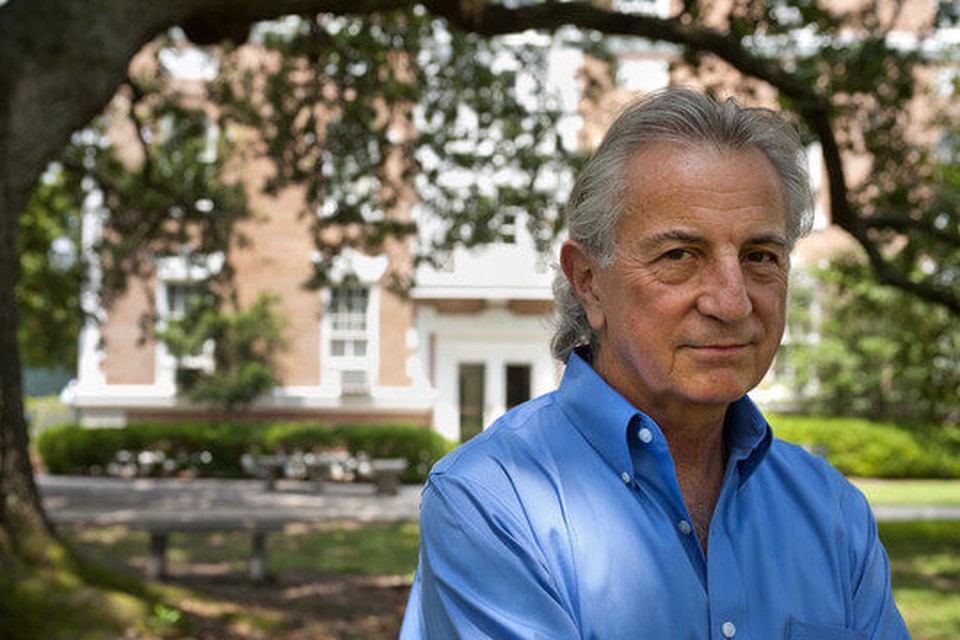Charles Figley had been home from his military service in Vietnam for 6 years when he found himself standing in front of the Capitol Building in Washington, D.C., surrounded by about a thousand of his fellow Vietnam veterans. It was 1971, and to the applause of the other protesters, Figley and his peers approached the Capitol, lifted their fists high, and tossed their own war medals onto the building’s steps as a sign of protest against the war.
To Figley, the gesture represented the moral qualms he harbored about what he’d seen the American military doing in Vietnam, but it also reflected what he’d seen since returning to his home country: many Vietnam vets were not coping well with the adjustment back to civilian life, and they weren’t receiving the mental health support they needed.
At the time of the protest, Figley had already attended college on the GI Bill and earned a degree in human development. He was in the midst of finishing his master’s degree in Human Development and was completing a thesis on “Child Density and the Marital Relationship and he decided he’d stay in D.C. for a while, living out of his VW Bug. He needed to better understand these other veterans and what they were going through.
“I thought, I can’t do much as a demonstrator to convey how bad war is, but if I study my fellow Vietnam combat veterans, I can show that their life has been tremendously and negatively impacted by the trauma,” Figley said.
Figley’s first two books grew out of that research. The first, Stress Disorders Among Vietnam Veterans: Theory, Research, and Treatment, published in 1978, was an anthology that included writing from luminaries in psychology with perspectives to offer on what veterans were going through. The second, 1980’s Strangers at Home: Vietnam Veterans Since the War, again asked experts to consider the emotional impact of war.
Figley says that before these collections appeared, trauma research was not yet a consolidated field of study within psychology. Researchers had focused on distinct groups—like the characteristics of Holocaust survivors or domestic abuse survivors—but hadn’t yet linked the symptoms of trauma across causes to note how much they had in common.
“The books ushered in the modern era of studying trauma,” Figley said. Indeed, in 1980 the American Psychiatric Association included post-traumatic stress disorder (PTSD) in the third edition of its Diagnostic and Statistical Manual of Mental Disorders. Figley’s 1978 book included the initial draft of the language they used to define PTSD.
In the ensuing years, Figley researched and published on trauma within families, among tornado survivors, and in other populations, and came to be regarded as one of the foremost experts on trauma. In 1991, the government of Kuwait invited Figley and about 20 other global experts on trauma to the country to take stock of losses and damage after the Gulf War and to advise the government on how to recover. He also traveled to South Africa to be among those advising the government on pathways toward healing during the post-Apartheid period; to the Balkans, at the invitation of NATO, to suggest strategies for reconciliation during the ethnic conflicts of the 1990s; and to Northern Ireland to conduct a series of trainings on helping social workers and psychologists from opposing sides of the conflict to work together. Most recently, he traveled to Puerto Rico, at the invitation of a major foundation there, to advise leaders on how to galvanize communities to work toward recovery after the island’s devastating hurricane and governmental neglect.
At Tulane University, too, Figley has proven to be a transforming presence since his arrival in 2008. He brought with him to the university the Traumatology Institute, which he’d started in 1995 in the wake of the Oklahoma City bombing. The institute was the first of its kind. During his decade at Tulane, the School of Social Work has also launched the City, Culture, and Community PhD program, the Disaster Resilience Leadership Academy, certification in Disaster and Collective Trauma.
Figley wants to encourage his students to be the kind of leaders and innovators in the field that he has been. “The whole notion of building a program based on leadership is very unusual for social work schools,” he said. Which helps explain why he’s so content to be right where he is.
